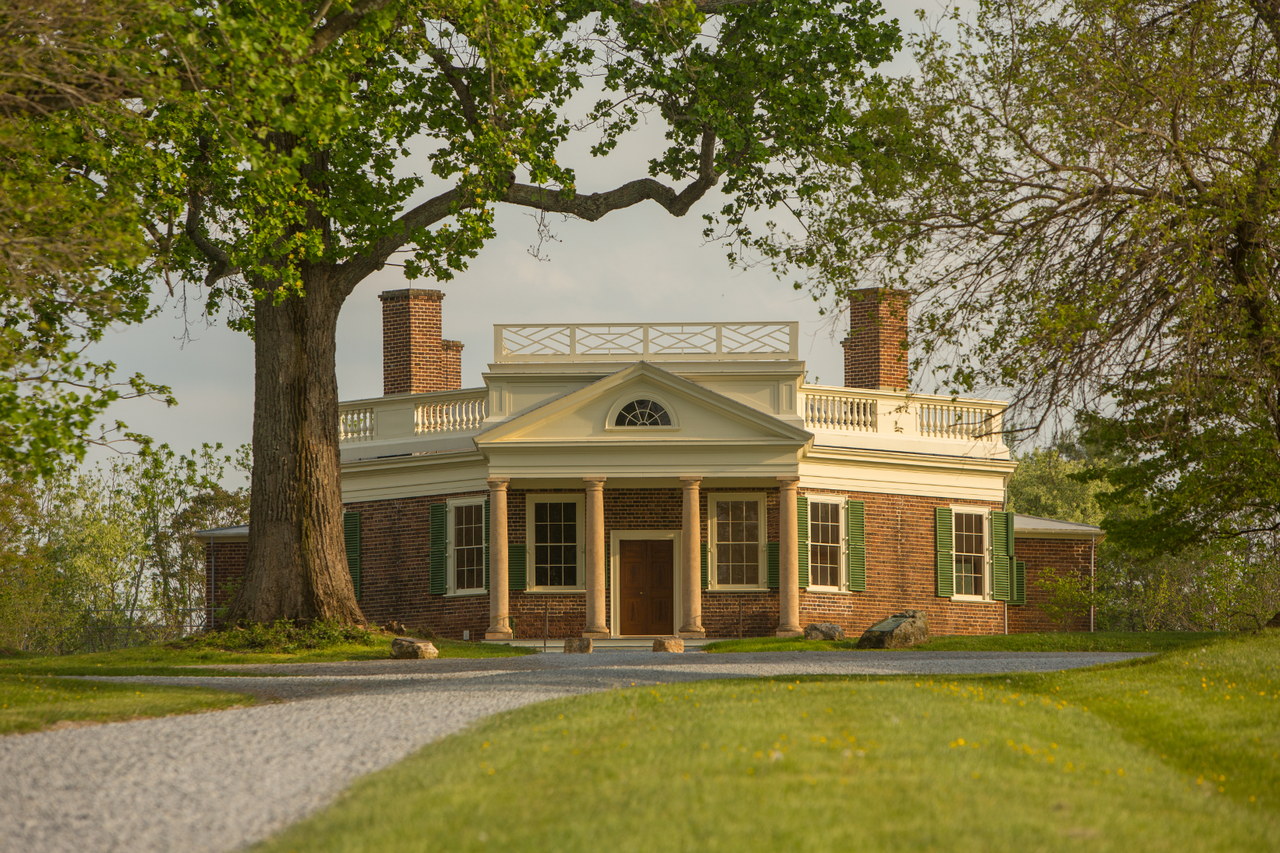
One of only two homes Thomas Jefferson designed for his personal use, the Poplar Forest retreat was the place where Jefferson came to indulge in the life of mind and renew his personal creativity. Jefferson and his wife, Martha, inherited the Bedford County plantation known as Poplar Forest from her father in 1773. When his presidency ended in 1809, Jefferson visited the retreat three or four times a year, often staying for several months at a time during planting seasons. Designated a National Historic Landmark by the Secretary of the Interior, and nearly lost to development, Thomas Jeffersons Poplar Forest plantation in the foothills of the Blue Ridge Mountains was rescued in 1984 by a group of local citizens who sought to preserve it for the cultural and educational benefit of the public. Poplar Forest was opened to the public for the first time in 1986, in its before restoration state. Today, the neoclassical architecture of the octagonal house has been returned to Mr. Jeffersons design. The National Trust for Historic Preservation has recognized the meticulous research and restoration efforts with its highest award, and the plantation has been nominated as a UNESCO World Heritage Site. A visit to Poplar Forest offers a unique opportunity to observe a live archaeological dig and historic restoration in progress, as efforts to reveal and restore Thomas Jeffersons vision for his personal retreat continue. Poplar Forest is open daily from March 15 through December 30 (closed on Easter, Thanksgiving Day, Christmas Eve and Christmas Day) from 10:00 a.m. until 5:00 p.m. (last tour leaving at 4:00 p.m.). Admission includes a guided house tour and self-guided exploration of exhibits in the lower level of the house, the Wing of Offices, the ornamental grounds and slave quarter site. Visitors on Saturdays and Sundays have the opportunity to add the Enslaved Community Tours to their visit, included with admission. These guided toursfrom the site of the slave cabins throughout the nearby plantation grounds, with stops along the wayprovide insight into the work the enslaved residents were doing, discovered through true stories and anecdotes that have been documented in letters and archaeological evidence.
1542 Bateman Bridge Road
Forest, VA 24551
(434) 525-1806